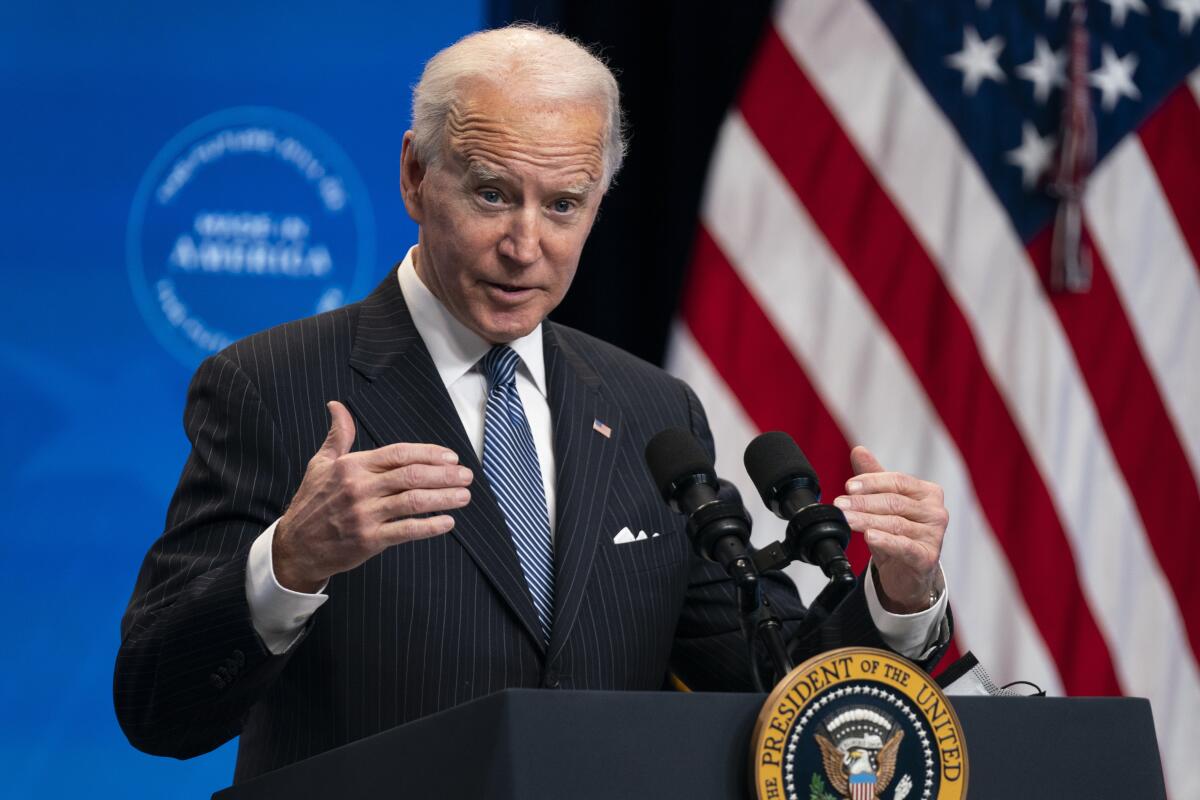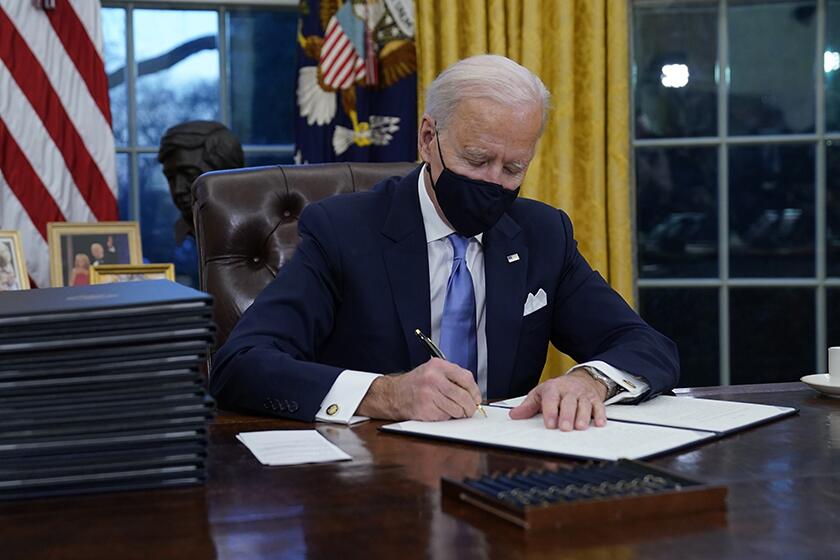Democrats unveil $15 minimum wage bill ahead of stimulus action

- Share via
House and Senate Democrats on Tuesday unveiled a bill to increase the federal minimum wage to $15 an hour, highlighting their intention to include the measure in the next round of COVID-19 relief.
The Raise the Wage Act of 2021 follows through on one of President Biden’s priorities for the aid package, and mirrors a bill that passed in the House in 2019. It would phase in the hike from the current $7.25 to $9.50 this year and the full $15 by 2025.
House Budget Committee Chairman John Yarmuth of Kentucky said Democrats are prepared to try to enact the increase through a special budget tool that can bypass any filibuster attempt by Senate Republicans. Even so, experts are divided on whether the minimum wage can pass using those budget-reconciliation rules — which require a provision to have more than “merely incidental” fiscal impact. Supporters of the bill argue that it will increase tax revenue and decrease government spending on food stamps and other support for the poor.
The proposed bill would also raise the tipped minimum wage and youth minimum wage, by phasing both out by 2027. After 2025, the minimum hourly rate would be indexed to national median wage growth, using Labor Department calculations. House Education and Labor Committee Chair Bobby Scott of Virginia said that the bill will raise wages for 32 million workers.
“My hope is that we will bring Republicans on board,” said incoming Senate Budget Committee Chair Bernie Sanders (I-Vt.). “If we cannot get enough Republicans to vote for this legislation under regular order we must not take no for an answer.”
President Biden’s executive orders and other directives include such topics as the eviction, stimulus checks, food benefits, worker safety, student loans and anti-LGBTQ discrimination.
Sanders told reporters Tuesday he would put the measure in a budget reconciliation bill if Republicans oppose it.
The introduction of the measure comes as Democrats prepare to move forward on Biden’s $1.9-trillion COVID-19 relief bill without Republican support.
Senate Majority Leader Charles E. Schumer (D-N.Y.) said on the Senate floor Tuesday that he still wants to strike a bipartisan deal, but action is urgently needed and he will not allow Republicans to delay it.
“The work must move forward, preferably with our Republican colleagues, but without them if we must,” Schumer said.
Massive job losses caused by the COVID-19 pandemic will leave tens of thousands of low-wage workers without homes over the next three years, a report published Tuesday by a Los Angeles-based research group forecasts.
Moderate Senate Republicans, whose votes would be needed to reach the 60-vote threshold to pass legislation outside of the reconciliation process, have already said they do not support the minimum wage boost as part of the COVID-19 relief bill.
Maine Sen. Susan Collins told reporters she is pushing a bipartisan group of 16 senators to quickly fashion a targeted relief bill focused on vaccine distribution and other measures directly tied to ending the pandemic.
Democratic leaders’ patience for such an effort appears limited.
There’s “very limited time” to allow for GOP lawmakers to get on board, said Illinois’ Dick Durbin, a member of the Senate Democratic leadership team who’s also in the bipartisan group of 16.
“We’re facing a national emergency with COVID-19 and the economy — we’ve got to move quickly,” Durbin said Tuesday.
More to Read
Get the L.A. Times Politics newsletter
Deeply reported insights into legislation, politics and policy from Sacramento, Washington and beyond. In your inbox twice per week.
You may occasionally receive promotional content from the Los Angeles Times.












